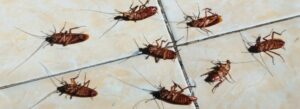Kent’s mix of rural landscapes, historic homes, and growing urban centres makes it a beautiful place to live—yet unfortunately, it’s also a hotspot for a wide variety of pests. From the cobbled streets of Royal Tunbridge Wells to modern homes with solar panels in Medway, homeowners across Kent encounter everything from common insects to wildlife intrusions. But one question we hear time and again is:
What’s the hardest pest to get rid of?
The answer, backed by both experience and data, is bed bugs. But other pests come close—including squirrels, silverfish, and vermin like rats. In this extended guide, we’ll cover which pests are the most persistent, where they show up across Kent, and how they impact your health, property, and peace of mind.
Why Are Bed Bugs the Most Difficult?
Let’s start with the heavyweight of household headaches: bed bugs.
These tiny bloodsuckers aren’t just irritating—they’re incredibly hard to eliminate. They hide in your mattress, bedframe, furniture, clothing, and even behind wallpaper. If you’ve brought one home, it doesn’t take long before you’re facing a full-blown infestation.
What makes them so tough?
- They’re resistant to many pesticides and poisons
- They can survive months without feeding
- They spread fast and are nearly invisible to the eye
- DIY treatments rarely work—professional inspection and heat treatments are usually required
Left untreated, bed bugs can trigger allergic reactions, sleepless nights, and deep-clean costs. And Kent is seeing a sharp rise in infestations—not just in cities like Gravesend or London, but in quiet villages too.
Other Challenging Household Pests in Kent
While bed bugs might win for difficulty, other pests present major challenges of their own—especially in Kent.
Rodents: Rats and Mice
Rats are not only destructive—they’re dangerous. As carriers of diseases like leptospirosis and salmonella, their presence in your home (especially in your bathroom or kitchen) is a serious hazard.
Rats often chew through wires, invade basements, and nest behind appliances. DIY traps or rodenticides may not be enough—especially when dealing with large colonies or hard-to-reach spaces.
Vermin problems are especially common in areas like Medway, Tonbridge, and other semi-rural parts of Kent.
Squirrels in Lofts and Roofs
Grey squirrels are cute—but when they invade your roof space, it’s war. These pests chew insulation, woodwork, and even solar panel wiring. Worse, they can be aggressive when cornered and are protected by UK law, meaning removal must be handled carefully.
In areas like Royal Tunbridge Wells, where many homes border wooded areas, squirrels are a growing issue—especially in autumn and winter.
Silverfish and Textile Pests
Found in dark, damp places like bathrooms, basements, or behind wallpaper, silverfish can damage your textiles, books, and wallpaper. Alongside them, clothes moths and carpet beetles may destroy textiles and clothing without being spotted for weeks.
These pests love homes with poor ventilation or cluttered storage—and are especially common in older Kent properties.
Birds (Especially Feral Pigeons)
Birds may seem harmless, but feral pigeons can cause serious property damage and leave droppings that carry diseases. If they nest under solar panels or in roof tiles, they can dislodge tiles and block gutters.
Proofing solutions like spikes, netting, and deterrents require professional help—and are increasingly necessary across urban areas in Kent, including Gravesend, Medway, and Tonbridge.
Bees, Wasps & Other Insects
Though bees are protected, their presence in walls or attics can be alarming. Wasps are more aggressive and pose a danger to those with allergies. Meanwhile, other insects like spiders, flies, and beetles are typically easier to deal with—but may still indicate underlying hygiene issues.
Innovation Pest Control uses integrated pest management to not only remove these insects but also prevent them from returning.
Health Risks of Persistent Pests
Unwanted guests don’t just cost you time and money—they put your health and wellbeing at risk.
Health hazards include:
- Leptospirosis from rat urine
- Salmonella from contaminated surfaces
- Asthma and skin issues triggered by bed bug bites or flea infestations
- Pet safety risks due to inappropriate DIY flea treatments or poisons
If you own pets, DIY pest control can also be risky. Always consult a professional when using products like rodenticides, sprays, or bait stations.
The Importance of Professional Inspection
A proper pest inspection is critical—especially for pests that hide deep inside your home’s structure. At Innovation Pest Control, every job begins with a thorough inspection of entry points, nests, and high-risk areas like:
- Roof voids
- Behind furniture
- Under floorboards
- In or around solar panels
- Wall cavities and skirting
Pest Trouble in Every Corner of Kent
Different towns across Kent face different pest challenges. Here’s what you might encounter depending on where you live:
| Location | Common Pests |
|---|---|
| Medway | Rats, silverfish, birds under solar panels |
| Gravesend | Cockroaches, mice, wasps |
| Royal Tunbridge Wells | Squirrels, bed bugs, textile pests |
| Tonbridge | Rats, spiders, fleas |
| Canterbury | Birds, bed bugs, flies |
| Ashford | Mice, ants, cockroaches |
Wherever you live, pests find a way in. That’s why local knowledge and fast action matter.
Should You Use Checkatrade to Find a Provider?
While platforms like Checkatrade offer a directory of pest control companies, not all are specialists in dealing with hard-to-remove pests like bed bugs or feral birds. For complex cases, it’s better to work directly with a trusted local expert like Innovation Pest Control, who understands the specific challenges Kent homeowners face.
Final Word: Get Professional Help Before It Gets Worse
Whether it’s bed bugs, rats, or squirrels chewing through your solar panel cables, the truth is this: The longer you wait, the harder it gets. DIY sprays won’t fix a vermin problem. Bug bombs won’t stop silverfish eating your clothes. And traps alone won’t keep feral pigeons off your roof.
Innovation Pest Control uses environmentally responsible, science-based methods to remove the UK’s toughest pests—safely and for good.
Book Your Inspection Today
Facing a stubborn infestation in Kent? Whether you’re in a city or a rural village, Innovation Pest Control is here to help.
✅ Discreet, rapid callouts ✅ Family and pet-safe treatments ✅ Full property inspection and reports ✅ Experienced in urban, coastal, and countryside settings
Frequently Asked Questions About Hard-to-Remove Pests in Kent
What is the toughest household pest to eliminate in Kent?
Without question, bed bugs are the toughest household pest to eliminate in Kent. Their ability to hide in mattresses, carpets, cracks, and even electrical outlets makes them incredibly hard to treat without professional equipment like heat treatment systems.
Which pest is hardest to get rid of in Kent homes?
Aside from bed bugs, rats and squirrels top the list. These pests invade lofts, solar panels, and wall voids, causing both structural damage and health risks. Their intelligence and wariness of traps make them difficult to fully eradicate.
What is the most stubborn household pest in Kent?
Silverfish are surprisingly stubborn. They breed in damp areas like bathrooms and basements, are nearly silent, and often go unnoticed until serious damage is done to books, clothing, and wallpaper.
Which pests are notoriously difficult to eradicate in Kent?
The most notoriously difficult pests to eradicate in Kent include bed bugs, feral pigeons, fleas, and moths. These pests either reproduce rapidly, resist standard treatments, or have legal protections requiring specialised handling.
What household pest is hardest to kill in Kent?
Cockroaches and bed bugs are among the hardest to kill. They can survive chemical treatments and require targeted, repeated action. Cockroaches also hide in kitchens and reproduce quickly—making them a long-term issue without proper containment.
Which pest requires professional help to remove in Kent?
Feral pigeons, rats, and bed bugs nearly always require professional help. DIY methods might address the surface issue, but they rarely tackle the nest, breeding cycle, or hidden entry points—leading to quick reinfestation.
What is the most common hard-to-remove pest in Kent?
Rats are the most common and one of the hardest pests to remove due to their adaptability and persistence. Whether it’s urban Gravesend or rural Royal Tunbridge Wells, these rodents are expert invaders of lofts, drains, and kitchens.
Which pest is notoriously resistant to DIY removal in Kent?
Fleas and bed bugs are highly resistant to DIY sprays or flea treatments from pet stores. Many over-the-counter products fail to kill eggs or reach deep into upholstery and bedding—causing reinfestations within days.
What pest control methods fail in Kent households?
Typical failures include:
- Bug bombs for bed bugs (they cause scattering)
- Mouse traps without sealing entry points
- Cheap sprays that don’t affect eggs or larvae
- Ultrasonic devices that rodents often ignore
Which pest is most difficult to detect in Kent homes?
Bed bugs and silverfish are extremely hard to detect early. Bed bugs leave minimal signs, while silverfish are nocturnal and hide in crevices. Often, homeowners don’t realise they have an infestation until it’s well-established.
What is the longest-lasting household pest infestation in Kent?
Moth and carpet beetle infestations can linger for months—especially if larvae go unnoticed in wool rugs, wardrobes, or upholstered furniture. These pests damage textiles and can be difficult to remove entirely without professional treatment.
Which pest has the highest re-infestation rate in Kent?
Bed bugs and fleas have the highest re-infestation rates. A single missed egg can lead to a new infestation in weeks. That’s why follow-up visits are crucial with these pests.
What pest is most likely to require repeat treatments in Kent?
Cockroaches and mice often require multiple treatments, especially in terraced housing or blocks of flats. They move between units and can re-enter unless structural proofing is completed.
Which pest is hardest to remove from carpets in Kent?
Fleas, moths, and bed bugs are particularly difficult to eliminate from carpets. Their eggs settle deep into fibres, and regular vacuuming is rarely enough. Professional steam or heat treatment is usually required.
What pest is most difficult to eliminate from upholstered furniture in Kent?
Bed bugs again win this category. They nest inside seams and under cushions in sofas, chairs, and mattresses. Upholstery cleaning alone doesn’t kill them—professional pest control is a must.
Which pest is notoriously hard to get rid of from kitchens in Kent?
Cockroaches. Warm, food-rich environments like kitchens make ideal breeding grounds. They hide under appliances and behind cabinetry, often requiring gel baits, sprays, and monitoring traps placed by professionals.
What pest is hardest to remove from wooden structures in Kent?
Woodworm, termites (rare but possible), and carpenter ants (in some cases) are the hardest to remove from wooden structures. However, rats and squirrels can also chew timber and nest in roof beams—causing major damage.
Which pest requires the most aggressive treatment in Kent?
Bed bugs require the most aggressive treatment. Standard sprays often fail, and heat treatments—raising room temperatures above 50°C—are the only reliable method for full eradication.
What pest is most difficult to remove from behind walls in Kent?
Rats, mice, and cockroaches are all adept at hiding behind walls, in cavity insulation, and between floor joists. Rodent infestations often require cameras or traps placed in voids to identify and block access points.
Which pest has the highest removal failure rate in Kent?
Bed bugs have the highest failure rate when treated improperly. DIY solutions almost never work long-term, and even some low-cost pest control services miss critical follow-ups—resulting in recurring infestations.







